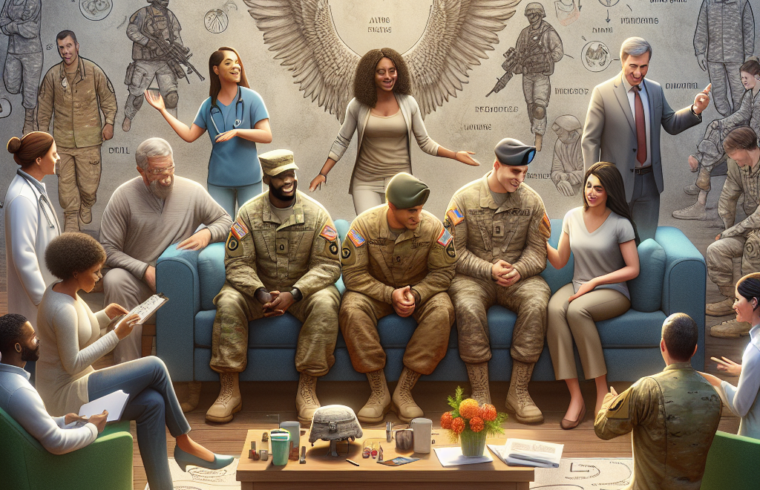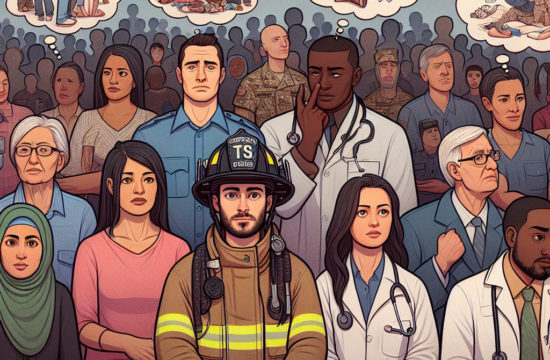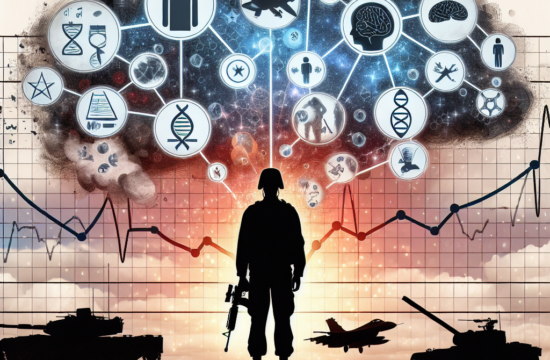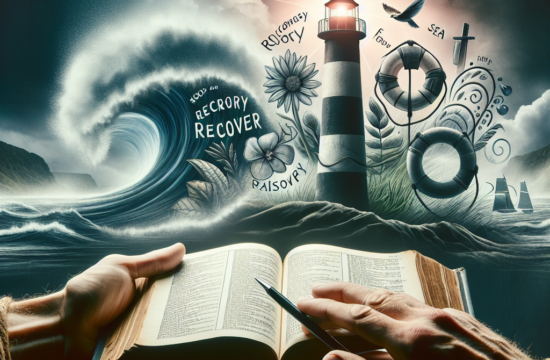==> Thank you for reading this post! Click Here If you are looking for support and Victory over PTSD.
The Astonishing Success of Military PTSD Recovery Programs
- Understanding Military PTSD
- The Impact of Recovery Programs
- Success Stories That Inspire
- Strategies for Supporting Veterans
Understanding Military PTSD
What Is Military PTSD?
So, let’s kick things off by discussing what PTSD actually is. Post-Traumatic Stress Disorder (PTSD) is a mental health condition triggered by experiencing or witnessing traumatic events. For our military folks, this can come from combat experiences, training accidents, or even witnessing the loss of a comrade. It’s not just a “toughen up” issue; it’s a serious mental health concern that many brave service members face.
From my personal experience, I’ve seen firsthand how this condition can affect lives. Many veterans return home, carrying invisible scars that dictate their daily lives. It’s heartbreaking, really. Whether it’s nightmares, anxiety, or social withdrawal, military PTSD leaves a heavy mark, often leading to deeper issues like depression or substance abuse.
Understanding the root of military PTSD is crucial for not just veterans but also for their families and friends. It builds empathy and encourages an open dialogue, which is the first step toward healing and recovery.
Symptoms and Effects
Now that we know what PTSD is, let’s dive into how it manifests in those who serve. Symptoms can run the gamut from flashbacks to severe anxiety, and even panic attacks. It’s wild how a sound or a smell can transport someone back to a traumatic experience. Can you imagine just trying to live your life, and suddenly you’re back in the thick of a traumatic experience? It’s tough.
The effects of these symptoms aren’t just personal; they ripple out to families and communities. Spouses may feel helpless, unable to connect with their loved one, and children can feel the strain too. Having witnessed this dynamic, I can’t stress enough the importance of understanding PTSD as a family affair—support systems are everything.
In recognizing these symptoms, it’s important to support those affected whenever possible. Open conversations and professional help can make all the difference in someone’s recovery journey.
Seeking Help
Alright, so now that we’ve walked through the symptoms, let’s talk about seeking help. Admitting that you need assistance is often the hardest part of the battle. Many veterans suffer in silence due to stigma associated with mental health issues. I’ve seen individuals completely withdraw from support systems simply because they didn’t want to be seen as weak. Trust me, it takes a stronger person to seek help than to shoulder that burden alone.
A great starting point can be talking to someone who understands the military culture. Organizations specifically aimed at veterans offer support groups and counseling designed for them. It’s all about building that comfortable space where they can share without judgment.
There are also numerous online resources available. With the digital age in full swing, it’s a blessing that veterans can access information and communities tailored to their unique needs right at their fingertips!
The Impact of Recovery Programs
What Are Recovery Programs?
In recent months, I’ve learned a lot about recovery programs focused on military PTSD, and let me tell you, they are game-changers. These programs can include therapy sessions, group support, art therapy, and even equine therapy. That’s right—working with horses has proven to be an incredibly healing experience for many veterans!
Recovery programs aim to help veterans process their trauma and reintegrate into civilian life. They provide a structured approach that many find reassuring. It’s about creating a routine that fosters stability and healing.
Each program has its own style and methodology, making it essential to find one that resonates with the individual’s unique needs. It’s hands-down one of the best investments for personal growth and recovery.
The Role of Community
Let’s chat about the impact of community within recovery programs. When veterans come together, it creates a collective understanding and shared healing journey. There’s something incredibly powerful about standing shoulder to shoulder with someone who truly gets it.
Support from peers encourages openness and vulnerability, which is vital when addressing mental health. It’s like a support system that makes surviving not only possible but less lonely. I’ve noticed that many veterans are willing to share their experiences when they see others doing the same.
Building community connections fosters resilience, which can translate to better long-term recovery. It’s comforting to see that no one has to navigate this road alone.
Evidence of Effectiveness
Many studies back up the efficacy of these recovery programs, showcasing significant improvements in mental health for participants. I’ve read countless success stories where veterans not only manage their PTSD symptoms but also come out stronger and more connected than ever.
Research often highlights drastic reductions in symptoms, increased quality of life, and enhanced coping strategies after completing such programs. Testimonials offer a goldmine of hope, showing that transformation is possible!
It’s thrilling to witness these statistics manifest in real-time, and I encourage everyone to spread the word about the successes of recovery programs for Veterans. Behavioral changes linked to these programs positively impact entire communities.
Success Stories That Inspire
Real-Life Transformations
I’ve had the privilege of meeting some incredible veterans who have experienced life-changing transformations thanks to recovery programs. One veteran I met went from isolating himself in his home to participating actively in community events. It was a light-bulb moment to see him regain his passion for life!
These narratives inspire hope—proof that recovery is possible and that the darkest times can lead to meaningful change. Each story emphasizes how support and understanding from both peers and professionals can bring about remarkable change.
Get Started with Recovery! Visit us for more Information and Support
Sharing these success stories serves not just as inspiration but also as powerful advocacy for the programs themselves. By shedding light on their journeys, we encourage more veterans to seek the help they desperately need.
Community Impact
Let’s not forget how the success of individual veterans impacts their families and communities. For instance, a veteran who engages in recovery programs often finds their relationships improving. They learn communication skills, emotional insight, and trust—qualities that help them reconnect with family members.
It’s heartwarming to witness the ripple effect of these programs. Families that once felt disconnected can come together stronger than ever. Reintegrating into civilian life is challenging, but when veterans feel supported and valued, it strengthens the fabric of the community.
Communities benefit from positive role models who have journeyed through their struggles. The inspiring change within a single person can spark motivation in many, creating a cycle of healing that benefits everyone.
Sharing Hope
In closing, sharing success stories, whether through social media, workshops, or local meet-ups, helps to spread optimism and encourages other veterans to take that crucial first step toward recovery. I believe sharing these narratives creates a supportive atmosphere where more individuals might feel motivated to join programs, transforming lives.
A successful journey always begins with hope, and spreading that hope can breathe new life into so many. We’ve got to keep telling these inspiring narratives to honor those who’ve fought for our country.
This kind of sharing isn’t just therapeutic for the narrator; it can be a powerful testament to those who are still finding their way through the hardships. It’s a bond that strengthens us all.
Strategies for Supporting Veterans
Listen Actively
Supporting a veteran in your life starts with listening—really listening. It’s crucial to create a safe space where they can express their feelings without fear of judgment. Everyone just wants to feel heard and validated, right?
Active listening involves not only hearing their words but being fully present and engaged. I have found that sometimes, just nodding or responding with “I can’t imagine what you’ve been through” can work wonders to show that you care.
Encourage them to share their experiences at their own pace. Building trust is key here, and it’s about creating a comfortable atmosphere where they feel empowered to share their truth.
Encourage Participation in Programs
Often, the biggest hurdle comes when suggesting that a veteran join a recovery program. Approach this gently. From my experience, sharing how these programs helped others can be incredibly powerful. It can aid them in seeing the potential benefits rather than just viewing it as another obligation.
Sometimes, offering to accompany them to their first meeting or session can ease anxiety and demonstrate your support. Being there in person shows that they’re not alone, and having that connection can lessen feelings of isolation.
It’s essential to continue being their cheerleader throughout their journey. Recovery is a process, and having someone in their corner can make all the difference.
Educate Yourself and Others
One thing I learned is that education is a game-changer. The more you know about PTSD and the recovery process, the better equipped you are to help. It helps to remove misconceptions and stigma, paving the way for open discussions.
When you understand the challenges that veterans face, you can advocate effectively on their behalf. Sharing that knowledge with others in the community can foster an environment of collective support.
Knowledge is power, and when we equip ourselves with the right tools, we’re better prepared to uplift and inspire those who have served.
FAQs
What is military PTSD?
Military PTSD (Post-Traumatic Stress Disorder) is a mental health issue resulting from trauma experienced during military service, such as combat, accidents, or witnessing traumatic events.
How effective are PTSD recovery programs?
Research shows that recovery programs are highly effective, leading to significant improvements in mental health, coping strategies, and overall quality of life for participants.
What can I do to support a veteran?
Active listening, encouraging participation in recovery programs, and educating yourself about military PTSD are all ways you can effectively support a veteran in your life.
Are there community resources available for veterans?
Yes! Many organizations offer programs tailored to veterans’ unique needs, including support groups, therapy sessions, and online resources that can be easily accessed.










